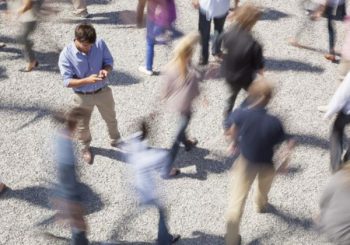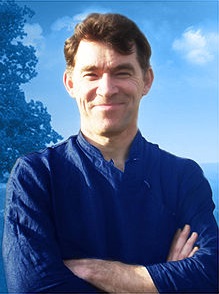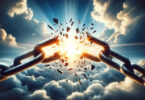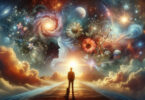Guest writer for Wake Up World
Many people cherish a belief that there will be a time in their lives when they’re finally able to sit back and relax. After working hard for years, we’ll finally be happy with the level of success or wealth we’ve achieved, and feel entitled to rest and enjoy the fruits of our labour.
But it often doesn’t work like this. Most of us depend on activity in the same way that we depend on distractions like television. We use activity as a way of keeping our attention focused outside ourselves.
Not long after leaving university, I took a temporary office job, in the pensions department of an engineering firm. I did a number of dreary jobs around that time, but this was undoubtedly the dreariest. There was a small room in the office full of shelves packed with dozens of boxes of old pension forms—one for every person who had ever worked for the company. My task was to sort the forms into alphabetical order. There were thousands of them, and it took me two whole months.
One of my colleagues was an old man called Jimmy. When I asked him how long he’d worked here, he replied, ‘Just a few months. I’m from a temping agency like you. I’m 66—I retired from my proper job about a year ago. I was working in insurance.’
‘So why did you start this job, just after retiring?’
‘I didn’t like having nothing to do,’ he said. ‘I like keeping myself busy.’
I can understand why he did this now, but at the time I found it amazing. Why would somebody who’d been set free from the routine drudgery of office work choose to go back to it, even though he didn’t need the money? From my point of view, he could have been staying in bed late, reading books, going for walks in the countryside, taking up new hobbies—but he’d chosen to shut himself up in a stuffy office all day again.
In this sense the term ‘human being’ is really a misnomer. One of our essential characteristics of human beings is that we find it impossible to be. If anything, we are human doings. An indigenous anthropologist would probably nickname us ‘The creatures who can’t do nothing’ or perhaps ‘The creatures who can’t be alone with themselves.’
I don’t mean to disparage this impulse of ours to ‘keep busy.’ To a large extent we don’t have any choice. We have to work hard to keep our attention focused outside ourselves, because when we don’t, the consequences can be very negative. People who don’t have much structure or activity in their lives are more vulnerable to psychological problems. This is probably one of the main reasons why pop musicians, film stars and other extremely rich people are so vulnerable to drug addiction, depression and other problems. In the UK, there is a high incidence of drug problems amongst the aristocracy, for instance. There have been many cases of ‘privileged’ young aristocrats being arrested for heroin or cocaine possession, checking themselves into clinics for treatment and/or dying due to drug problems.
You might find this difficult to believe. How can these people be so unhappy when they have so much money and so much leisure time? After all, they’re free of the niggling worries about paying bills and keeping up with the mortgage which oppress most of us. They can buy anything they want at any time, go anywhere in the world they want to, do anything they want to at any moment.
But the main factor here is too much empty time. To put it simply, people who don’t need to work spend too much time alone with themselves, with nothing in particular to do. They aren’t forced to fix their attention outside themselves for 8 or 9 hours per day, as most of us are.
Research also shows that unemployed people are much more unhappy than the employed, with a higher level of suicide, alcoholism, drug addiction and mental problems. This isn’t just because of a lack of activity and structure, of course—other factors include the lower income, low social status and fewer social contacts—but it’s certainly an important factor. Retired people often suffer similar problems too. After a short ‘honeymoon’ period when they feel glad to be free of the pressure and the deadlines of work, they often begin start to feel disillusioned and even depressed.
But why do we need to keep doing? Why does inactivity cause us such problems?
There seems to be fundamental psychological discord inside us. The problem is that our own ‘mind-space’—the place we enter when our attention isn’t focused externally—is a very uncomfortable place. Our own ‘psyche’, the consciousness we feel ourselves to be inside our heads, is so restless and discordant that it’s difficult for us to spend any time there.
Think of two parents who argue all the time. There’s a terrible atmosphere in their house. Every time their teenage daughter comes home she senses an atmosphere of hostility which she knows can erupt into aggression at any moment. Every time she talks to her mother and father they’re irritable and snap back at her. They’re so wrapped up in their enmity for each other that they don’t have any time for her. As a result she tries to spend as much time away from the house as she can, spending her time at her friends’ houses and hanging around the park and the local shops. She only goes back when it’s absolutely necessary, for meals or for sleeping.
The only way we can stop doing and truly become human beings is by healing this discord inside us. We can only learn to be by learning to rest comfortably within our minds—which entails first making our minds a more harmonious place.
Originally published at Psychology Today and reproduced with permission.
Recommended articles by Steve Taylor, Ph.D:
- The Possibility of Precognition
- Hypnotic Healing: What is Responsible for the Placebo Effect and Hypnosis?
- Beyond Religion: Will Human Beings Ever Transcend the Need for Religions?
- The Transformational Effects of Bereavement
- Post-Traumatic Creativity: How Psychological Turmoil Can Unlock Our Creative Potential
- The Meaning of Life May Be Life Itself
- Spiritual Depression
- Do Psi Phenomena Exist? A Debate (Part One)
- Do Psi Phenomena Exist? The Debate Continues
- David Ditchfield’s Remarkable Near Death Experience
About the author:
Steve Taylor is a senior lecturer in Psychology at Leeds Beckett University, UK. His latest books in the US are The Calm Center and Back to Sanity: Healing the Madness of the Human Mind. He is also the author of The Fall, Waking From Sleep, and Out Of The Darkness. His books have been published in 19 languages. His research has appeared in The Journal of Transpersonal Psychology, The Journal of Consciousness Studies, The Transpersonal Psychology Review, The International Journal of Transpersonal Studies, as well as the popular media in the UK, including on BBC World TV, The Guardian, and The Independent.
Connect with Steve at StevenMTaylor.com.

If you've ever found value in our articles, we'd greatly appreciate your support by purchasing Mindful Meditation Techniques for Kids - A Practical Guide for Adults to Empower Kids with the Gift of Inner Peace and Resilience for Life.
In the spirit of mindfulness, we encourage you to choose the paperback version. Delve into its pages away from screen glare and notifications, allowing yourself to fully immerse in the transformative practices within. The physical book enriches the learning process and serves as a tangible commitment to mindfulness, easily shared among family and friends.
Over the past few years, Wake Up World has faced significant online censorship, impacting our financial ability to stay online. Instead of soliciting donations, we're exploring win-win solutions with our readers to remain financially viable. Moving into book publishing, we hope to secure ongoing funds to continue our mission. With over 8,500 articles published in the past 13 years, we are committed to keeping our content free and accessible to everyone, without resorting to a paywall.








